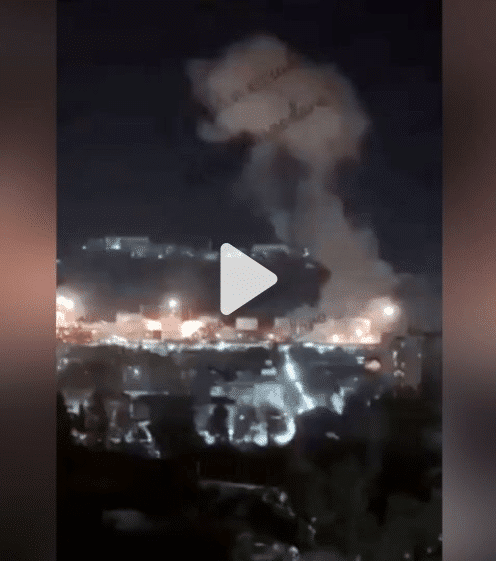Following an oil depot fire and a sudden closure of the airspace over the second-largest city in the nation, Russia’s Defense Ministry on Tuesday accused Ukraine of conducting a series of attempted drone strikes against infrastructure located throughout much of Russia, including close to the capital.
Apparently, a Ukrainian drone crashed close to the village of Gubastovo, southeast of the capital, according to governor Andrey Vorobyov.
It was later determined that the drone was directed at a gas facility run by state-owned enterprise Gazprom, which he had earlier described as “civil infrastructure.”
State media cited the local Energy Ministry as saying that the facility was unharmed.
State media later posted a photograph of what it said was the crashed device, which appeared to resemble a Ukrainian-made UJ-22 attack drone.
The UJ-22 is relatively small and versatile, able to fly through poor weather and to travel up to 500 miles (800 kilometers). It’s unclear where or when the photo of the crashed drone was taken.
The crash was allegedly one of several attempted strikes, with state media reporting a drone was shot down near the Belarus border and the defense ministry claiming two more strikes were thwarted through the use of drone-jamming technology in the Krasnodar and Adygea regions.
“Both drones lost control and deviated from their flight path,” the defense ministry said in a statement. “One UAV (unmanned aerial vehicle) fell in a field, and another UAV, deviating from the trajectory, did not harm the attacked civilian infrastructure facility.”
At least one drone appeared to have evaded Russian defenses, with footage posted on social media overnight and geolocated by CNN showing a fire at energy firm Rosneft’s oil depot in Tuapse, on Krasnodar’s Black Sea coast.
It’s unclear if the facility was the intended target, but Ukraine has previously targeted oil depots within Russian-controlled territory.
CNN is unable to independently confirm the claims for each alleged attack, and Ukraine did not immediately comment on the incident. Ukraine has previously declined to comment on attacks inside Russia.
Following the alleged attacks, Russia’s second-largest city of St. Petersburg closed its airspace Tuesday within a 200-kilometer (124-mile) radius, briefly banning incoming flights, according to state media.
Russian President Vladimir Putin had been briefed about the closures – but Kremlin spokesperson Dmitry Peskov had declined to discuss whether it was related to the “incidents in St. Petersburg and Tuapse,” state media reported.
Attacks targeting Russian infrastructure have focused attention on Ukraine’s efforts to develop longer-range combat drones.
In early December, Russia reported multiple attacks by Ukrainian drones targeting military infrastructure, including air bases that lie hundreds of miles inside Russian territory and beyond the reach of Ukraine’s declared arsenal of drones.
Around the same time, Ukraine’s state-owned weapons manufacturer Ukroboronprom indicated that it is close to finishing work on a new long-range drone – though there is no public indication that such a device has been readied for deployment or was involved in explosions inside Russia.
At the time, Ukraine’s Defense Ministry offered no comment on the strikes – though a presidential adviser tweeted a cryptic message hinting at the possibility Kyiv was indeed behind the December attacks.
“The Earth is round – discovery made by Galileo. Astronomy was not studied in Kremlin, giving preference to court astrologers. If it was, they would know: If something is launched into other countries’ airspace, sooner or later unknown flying objects will return to departure point,” he said at the time.

